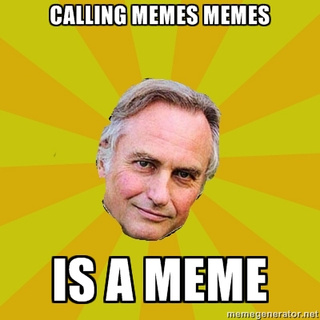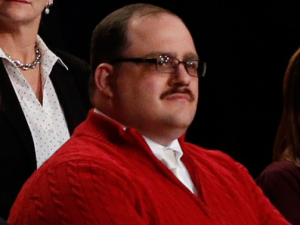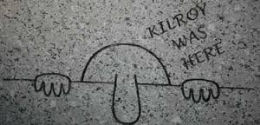My country, ’tis of memes

Keyboard Cat.
Pepe.
Harambe.
All cogs in the machine that is the meme. Memes are popular among today’s youth, but how impactful are they to our everyday culture?
Social media, as we can all see, has been engulfing our lives more and more. From checking our Twitter updates, to even seeing how many Snaps we receive on Snapchat, more and more millennials (and older people getting into this as well) seem to be almost glued to phone screens as if they are a majority of their life, myself included.
This media craze we all seem to be fixated on has been affecting all aspects of our lives: sleep, socializing, even where to find the nearest Starbucks has been impacted by the use of technology.
The phenomenon of “the meme” dates back before the internet was invented. In WW2, American troops graffitied the picture “Kilroy Was Here” in most countries they served in as a communal joke for the soldiers during a very dark time in history.
The large-nosed cartoon character was rather outlandish, and the war became lighter due to the laughs made by the then-famous picture.
Since the development of this form of joke, memes have been prevalent in society. Due to the simplicity of the jokes, it seems, they spread faster and faster through both word of mouth and technology (such as the media giants that we always constantly check), shaping, in my eyes, the entire basis of the form of the everyday joke in the process.
“The meme” has many implications in today’s society just by making communal jokes more easily obtainable for people. Before the internet, these communal jokes were harder to come by. Word of mouth, television and literature were the only way for jokes to spread, making their rise rather long compared to the rapidness of the jokes spread on the internet, easily accessible to those willing to Google or Bing one simple word on the fly.
Abbot and Costello would be proud of how fast people get delivered jokes in this pretty new medium, though their popularity may have a significant impact on modern comedy.
“The memes will eventually become a main source of jokes I would say, even maybe replacing the ‘yo momma’ joke in the process,” sophomore and self-proclaimed “meme master” Dominick Clesceri said.
Many others are similarly impacted by these internet jokes, including freshmen Beth Douglass and Casey McManaman.
“Sometimes they are a little idiotic and overused (for example, Harambe), but they’re a good way to cheer me up when I’m down,” Douglass said. McManaman took it one step further in her assessment of their significance.
“I believe memes are what shape our generation,” McManaman said. “They make every day in class a little brighter to anyone looking at them instead of working.”
As memes gain popularity, they touch on more aspects of American life. The recent presidential election became a topic for these internet jokes, from those talking about Democratic nominee Hillary Clinton’s email controversy to Republican nominee and now President-elect Donald Trump’s hair being compared to a corn stalk, no candidate was left untouched by memes.
Libertarian and Green party candidates Gary Johnson and Jill Stein were both subjects for many of these online jokes (What IS Aleppo, though?), and one can trace memes back to the 2012 election between Democrat Barack Obama and Republican Mitt Romney.
Like it or lump it, memes will keep spinning current events for jokes for a long time to come. Just look at Ken Bone’s recent rise to fame for example. Our favorite red-sweater-wearing undecided voter captured hearts within minutes of the third presidential debate thanks to memes, and remains a topic of conversation thanks to the phenomenon.
His rise in popularity shows the impact of memes to us plain and simple. The use of memes, as seen in this situation, had brought much more attention to this year’s election, impacting public view while doing so.
Many Americans could not choose a side in the election with both of the party’s candidates having very low approval ratings. However, with the impact of Ken Bone and many memes regarding politics, people may have paid more attention to the election, for better or for worse.
Bone especially pushed viewership towards this national event. Being as widely known as he was from making appearances on social media and from shows spoofing him such as Saturday Night Live, he brought increased attention to the debates, making more people watch them, which then formed connotations for the two candidates who were battling it out for the viewer’s vote. Memes, as seen, truly impact public opinion then, by getting current events out to the average person quickly as sometimes extremely funny jokes.
Whether you agree that memes impact people’s political views, it’s undeniable that they do bring happiness to some.
“Talking about a ridiculous frog or ‘mourning’ the death of a gorilla that has been gone for at least half a year I think is a bit odd, but man, does it bring smiles,” McManaman said.

